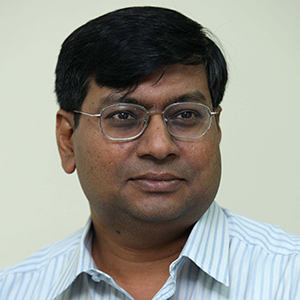 The constant reminders of Malaysia’s delicate race relations in all aspects of our national life remain like a bitter aftertaste to the much-advertised story of the nation’s socio-economic development over almost six decades.
The constant reminders of Malaysia’s delicate race relations in all aspects of our national life remain like a bitter aftertaste to the much-advertised story of the nation’s socio-economic development over almost six decades.
As the strength of the ruling Barisan Nasional coalition continues to face new tests, the power-sharing formula among the three main races that make up Malaysia’s population is being tellingly exposed as mostly a stop-gap measure between Umno and its senior coalition partners, MCA and MIC, to facilitate the transfer of power from the British colonial government to the people of this country.
Unfortunately, that tactical alliance which has grown to become the basis of the nation’s political paradigm has failed to evolve beyond the exigencies of our journey to independence.
This weakness in the country’s political structure will continue to trouble the progress of the nation as it meets each challenge along its course.
Consequently, time and again, we are forced to confront the incongruent characteristics that divide the country’s various communities along ethnic, religious and cultural lines.
This dilemma was only compounded with the formation of Malaysia in 1963, when the nation’s demographic spread was expanded to include the diversity of ethnic groups in Sabah and Sarawak.
Evidently, a great effort is needed to expand the consciousness of a Malaysian identity to transcend the simplistic notion of being a Malay, Chinese, Indian or an indigenous person of Malaysian origin.
However, this mental transformation cannot take shape when the prevailing dialogue is focused on protecting the traditional turf of our separate identities.
This is especially so when the constitutional provisions of the special rights of the Malays, and the inalienable freedom of the other races to protect their socio-cultural identities become counterpoints in an interminable struggle for self-preservation.
To take Malaysia to the next stage of its evolution as a modern state, a sense of common identity that transcends the ethnic roots of its peoples will have to be nurtured.
That will take some doing, considering that the provisions of the Federal Constitution on cultural identity mentioned earlier are being seen as a bulwark against the tide of acculturation by the dominant voices on both sides of the racial divide.
National unity, therefore, must wait until we can see ourselves firstly as members of a commonwealth of people who share more essential similarities than differences, more common aspirations than competing goals, more common feeling than a sense of separateness, and so on.
The idea that a nation can only stand united if its peoples subscribe to an overarching set of common values, such as a single belief system or religion, or if they share a common racial bond can be discounted as a false premise if the evidence of culturally uniform societies with a history of internecine conflict is examined.
In reality, diversity is very much an inherent quality of societies, that if embraced tends to enrich them, but if resisted, is likely to create a toxic inter-cultural experience.
The inter-ethnic friction that has troubled Malaysia in recent years is ample proof of the latter outcome.
Realising the danger of escalating the divisive mood that is emerging in the current time, right-thinking Malaysians cannot escape the conclusion that an opposite momentum must be created to foster a wholesome acceptance of diversity in order that a viable future for all communities can materialise.
To take this idea forward, it is necessary to recognise that the guiding principles on which our nationhood is founded must be elevated to a stage beyond communal identity and embedded in a universal ethos that transcends the norms of institutionised belief systems.
This will entail an evolution of social consciousness towards openness and liberal thinking instead of closed ideological structures built on prescriptive systems of guiding behaviour, for example.
It will mean giving up the idea that institutions should have oversight over personal beliefs or that a particular view was either preferred or to be discouraged.
That is some way to go for the conservative elements of our society today, but systemic change can sometimes have small beginnings.
Social movements are replete with examples of symbolic actions that have catalysed mental revolutions and changed the course of history.
A crucial element in the momentum for reform is the role of the young. To produce a society that can thrive in diversity, it is crucial that children imbibe the values that support acceptance and openness and recognise, for instance, the importance of protecting differing opinions from the oppression of the majority point of view.
Among the wide range of actions that can be supported to advance the movement towards an inclusive and open society, therefore, efforts that promote universal values among children should have a prominent place.
A child who learns to revel in the diversity of life outside his or her own culture would surely grow up to be an adult who can confidently thrive in the borderless world that is coming upon us.
The current state of race relations sends an unmistakable message that national unity must be framed anew through a universal lens. – September 12, 2015.
* This is the personal opinion of the writer or publication and does not necessarily represent the views of The Malaysian Insider.


Comments
Please refrain from nicknames or comments of a racist, sexist, personal, vulgar or derogatory nature, or you may risk being blocked from commenting in our website. We encourage commenters to use their real names as their username. As comments are moderated, they may not appear immediately or even on the same day you posted them. We also reserve the right to delete off-topic comments